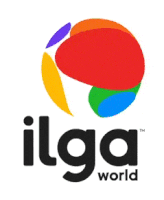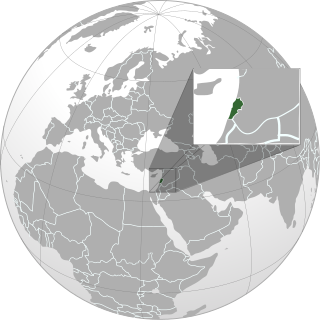
The International Lesbian, Gay, Bisexual, Trans and Intersex Association (ILGA) is a LGBTQ+ rights organization.

Human rights in Turkey are protected by a variety of international law treaties, which take precedence over domestic legislation, according to Article 90 of the 1982 Constitution. The International Covenant on Civil and Political Rights (ICCPR) was not signed by Turkey until 2000. As of today, however, Turkey is party to 16 out of 18 international human rights treaties of the United Nations. The issue of human rights is of high importance for the negotiations with the European Union (EU).

Lesbian, gay, bisexual, transgender, and queer (LGBTQ) people in Belarus face severe challenges not experienced by non-LGBTQ residents. Although same-sex sexual activity is legal in Belarus, gay and lesbian rights in the country are otherwise severely limited and homosexuality remains highly stigmatized in Belarusian society. Households headed by same-sex couples are not eligible for the same legal protections available to opposite-sex couples. Belarus provides no anti-discrimination protections for LGBTQ people, nor does it prohibit hate crimes based on sexual orientation and gender identity. Many Belarusian people believe that homosexuality is a psychiatric illness, and many LGBTQ persons in Belarus tend to hide their sexual orientation in public. Those who are "out" face harassment, violence and physical abuse.

Lesbian, gay, bisexual, and transgender (LGBT) people in Bulgaria face significant challenges not experienced by non-LGBT residents. Both male and female same-sex relationships are legal in Bulgaria, but same-sex couples and households headed by same-sex couples are not eligible for the same legal protections available to opposite-sex couples. Discrimination on the basis of sexual orientation has been banned since 2004, with discrimination based on "gender change" being outlawed since 2015. In 2019, a Bulgarian court recognized a same-sex marriage performed in France. Contrastingly, in 2024, Bulgaria's parliament prohibited the “propaganda, and promotion of non-traditional sexual orientation and/or gender identity other than the biological one”.
Mahmoud Asgari, and Ayaz Marhoni, were Iranian teenagers from the province of Khorasan who were publicly hanged on July 19, 2005. Iranian officials say the teenagers were executed for raping a 13-year-old boy, while gay rights groups claim they were executed for "being homosexual". The case attracted international media attention and the facts of the case are heavily debated.

Lesbian, gay, bisexual, transgender, and queer (LGBTQ) people in Jamaica face legal and social issues not experienced by heterosexual and gender-conforming people. Consensual sexual intercourse between same-sex partners is legally punishable by up to 10 years of imprisonment in the country.

Lesbian, gay, bisexual, and transgender (LGBT) people in Kenya face significant challenges not experienced by non-LGBTQ residents. Sodomy is a felony per Section 162 of the Kenyan Penal Code, punishable by 21 years' imprisonment, and any sexual practices are a felony under section 165 of the same statute, punishable by five years' imprisonment. On 24 May 2019, the High Court of Kenya refused an order to declare sections 162 and 165 unconstitutional. The state does not recognise any relationships between persons of the same sex; same-sex marriage is banned under the Kenyan Constitution since 2010. There are no explicit protections against discrimination on the basis of sexual orientation and gender identity. Adoption is restricted to heterosexual couples only.

Lesbian, gay, bisexual, transgender, and queer (LGBTQ) people living in Lebanon face discrimination and legal difficulties not experienced by non-LGBT residents. Various courts have ruled that Article 534 of the Lebanese Penal Code, which prohibits having sexual relations that "contradict the laws of nature", should not be used to arrest LGBT people. Nonetheless, the law is still being used to harass and persecute LGBT people through occasional police arrests, in which detainees are sometimes subject to intrusive physical examinations.

Lesbian, gay, bisexual, transgender, and queer (LGBTQ) people in Turkey face legal challenges not experienced by non-LGBTQ residents, though the overall situation is considered to be less repressive when compared to most other Muslim-majority countries.
KAOS GL, short for Kaos Gay and Lesbian Cultural Research and Solidarity Association, founded in 1994, is one of the oldest and largest LGBT rights organisations in Turkey. In 2005, the Ankara-based organisation became the first Turkish LGBT organisation to be legally registered as an association, after their application was initially appealed by deputy governor of Ankara. The organisation has been publishing the journal KAOS GL since its founding. The group operates the KAOS Cultural Center, which hosts cultural activities, meetings, and showings of films. The centre also houses an LGBT history library.

Lesbian, gay, bisexual, and transgender (LGBT) people in Albania face legal challenges not experienced by non-LGBT residents, although LGBT people are protected under comprehensive anti-discrimination legislation. Both male and female same-sex sexual activities have been legal in Albania since 1995, but households headed by same-sex couples are not eligible for the same legal protections available to opposite-sex couples, with same-sex unions not being recognized in the country in any form.

Lesbian, gay, bisexual, transgender, and queer (LGBTQ) people in Nicaragua face legal challenges not experienced by non-LGBTQ residents. Both male and female types of same-sex sexual activity are legal in Nicaragua. Discrimination based on sexual orientation is banned in certain areas, including in employment and access to health services.

Lesbian, gay, bisexual, and transgender (LGBT) people in Honduras face legal challenges not experienced by non-LGBTQ residents. Both male and female types of same-sex sexual activity are legal in Honduras.

Lesbian, gay, bisexual, transgender, and queer (LGBTQ) rights in Kosovo have improved in recent years, most notably with the adoption of the new Constitution, banning discrimination based on sexual orientation. Kosovo remains one of the few Muslim-majority countries that hold regular pride parades.

Human rights in Latvia are generally respected by the government, according to the US Department of State and Freedom House. Latvia is ranked above-average among the world's sovereign states in democracy, press freedom, privacy and human development. The country has a relatively large ethnic Russian community, which has basic rights guaranteed under the constitution and international human rights laws ratified by the Latvian government.

LGBTQ history in Turkey covers the development, contributions and struggles of lesbian, gay, bisexual, transgender, and queer (LGBTQ) people in the history of Turkey and their relation between Turkish politics from the abolition of the Caliphate to modern-day Turkey.

Istanbul Pride is a pride parade and LGBTQ demonstration held annually in Turkey's biggest city, Istanbul since 2003. Participants assemble in Taksim Square before marching the entire length of İstiklal Avenue. It has been described as the first and biggest LGBT event in Muslim-majority countries.
In Turkey, pink certificate is the colloquial name for a military discharge certificate given to those who are discharged or considered exempt from military service due to their sexual orientation. The Turkish Armed Forces Health Regulation, under Article 17 of "Mental Health and Diseases," explains that the case of "advanced sexual disorders," which are "explicitly apparent in the person's whole life," could cause "objectionable situations in the military environment". To receive such a discharge, individuals must "prove" their homosexuality, under the examination of military doctors and psychologists.
Demet Demir is a Turkish LGBT activist. She was awarded the Felipa de Souza Award in 1997 for her activism.
Censorship of LGBTQ issues is practised by some countries around the world. It may take a variety of forms, including anti-LGBTQ curriculum laws in some states of the United States, the Russian gay propaganda law prohibiting the "promotion of non-traditional sexual relationships", the Hungarian anti-LGBT law banning "content portraying or promoting sex reassignment or homosexuality", and laws in some Islamic states such as Afghanistan, Saudi Arabia, and Iran prohibiting advocacy that offends Islamic morality.















